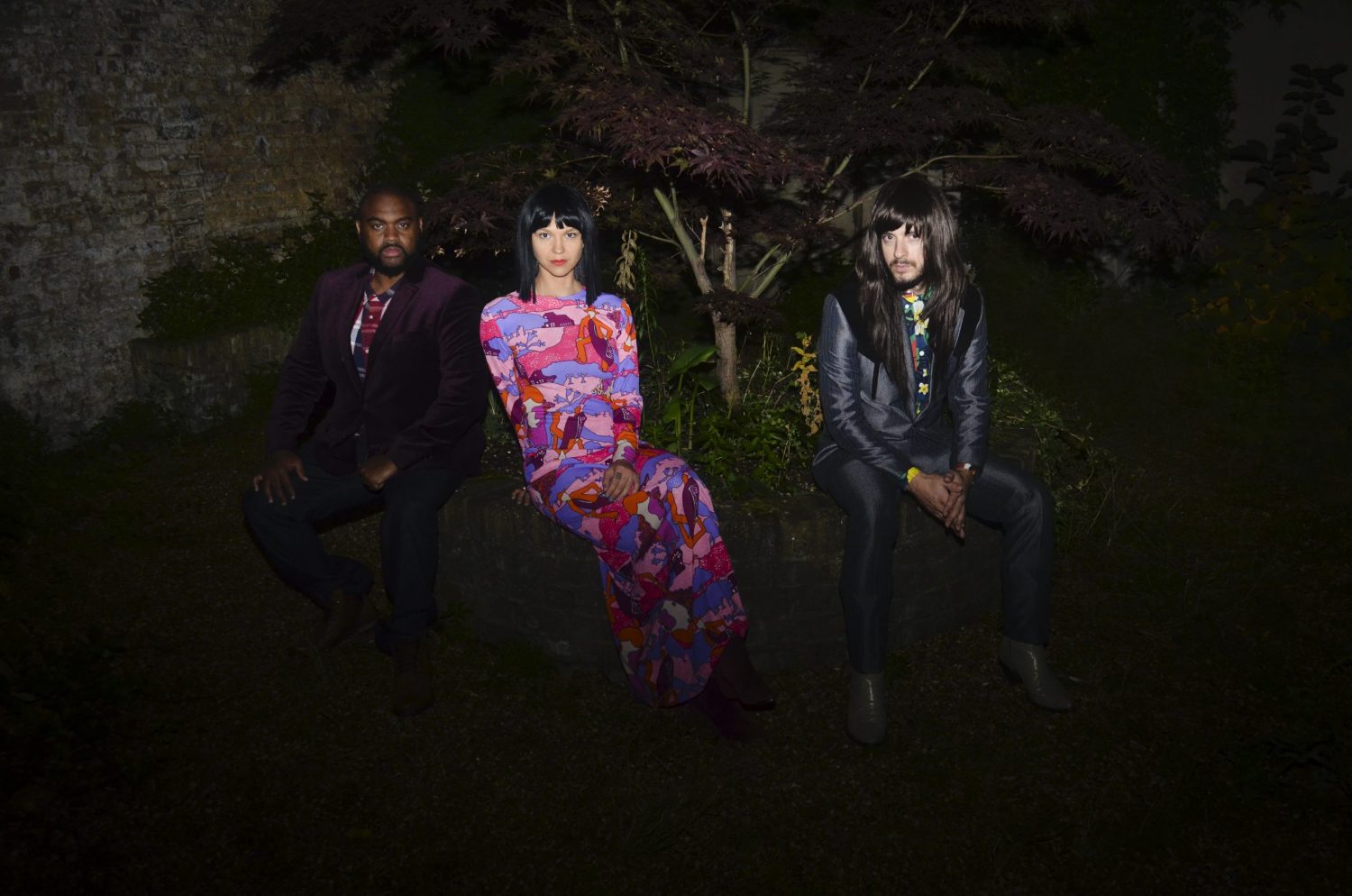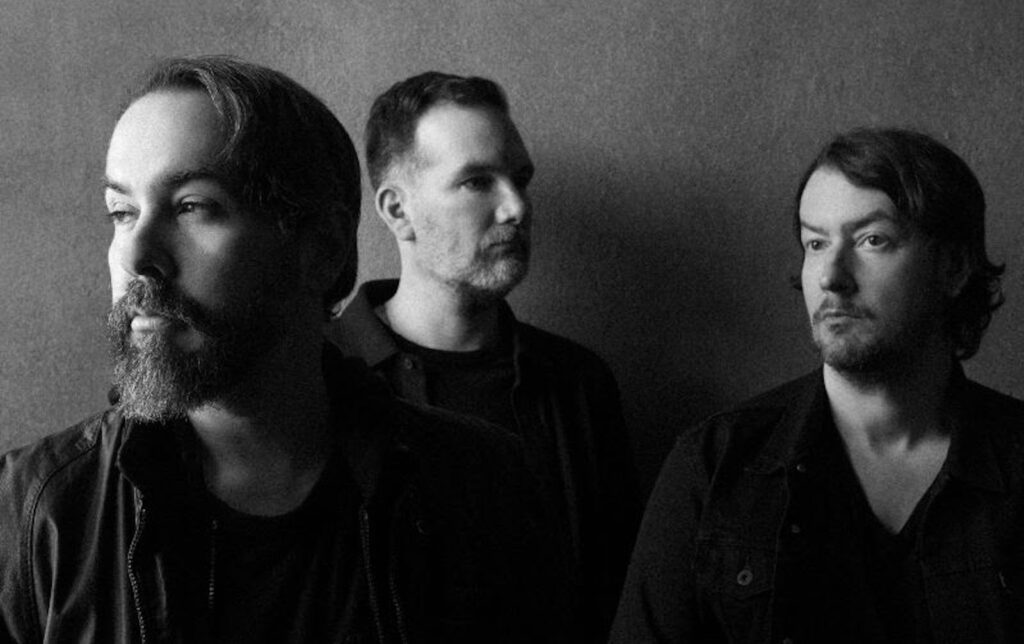Their third album, Mordechai, is out on Friday June 26.
Khruangbin have enveloped the world with a cosmic haze listeners have seldom experienced since the likes of Fela Kuti, Gil Scott-Heron, Shuggie Otis, Cymande or Roy Ayers took us to funk and jazz school during the ’60s and ’70s.
This band is different. They’re limitlessly contemporary, à la mode, varnished and progressive. Their sound drips with gold as they attract millions upon millions of adoring fans chasing the next seductive bassline.
They’re a music melting pot – genres of psychedelia, surf, soul, dub, jazz and funk wander in and out like a curious possum darting across the backyard fence. They’re like no one else and that’s what makes Khruangbin Khruangbin, 21st century’s most addictive band.
Now, the Houston trio look towards their third studio album, Mordechai, a record perpetuating their groove legacy while furnishing things with more vocal guidance – bassist Lee had a moment and now has something to say.
Vocals feature prominently on eight of the album’s ten tracks, but as guitarist Mark Speer tells us, it’s taken time for a voice to sit comfortably with their music.
“[When we] got signed to Late Night Tales, the guy up there, Paul [Glancy], was like, ‘Would you be keen on seeing if you guys can put vocals on your stuff’, this was before [2014’s] The Infamous Bill EP and we tried, we tried to put vocals on stuff but those songs had already been written,” Speer says. “So anything we put on top just sounded shoehorn so I was like, ‘No, we’re not putting vocals on this at all, that’s not what we do’.”
In the early going, Khruangbin was characterised by simplicity – Speer wasn’t interested in buttressing their music with needless technology. For a period, the guitarist’s live setup was represented by a wah pedal and that was it.
But as the band evolved, they began finding room for lyrics.
“Then, when we started doing [2015’s] The Universe Smiles Upon You, there were certain songs that ended up being like rhythm guitar, sort of bass, mainly chordal and not melodic guitar and so that left space for us to start experimenting with lyrics and where to put a voice.”
Yet vocals were never the hero – they were always to be an escape from the magnetic instrumentals underneath.
“We always wanted to have the voice be disembodied, like just another instrument,” Speer says. “So the idea behind our approach vocally to [The Universe Smiles Upon You] was like, let’s all sing together and let’s all sing together in unison because there’s no lead singer. We never wanted a lead singer because then all the focus is on the lead singer. We just wanted to be a band and for the focus to be on the music.
“So we ended up writing words for the songs on The Universe Smiles Upon You and those turned out pretty good and then the record after that [Con Todo El Mundo], we decided to try even more – basically if the song wanted it, we gave it words – and the songs that had mainly rhythm guitar, chordal kind of thing, that left space for something on top.”
Years of touring surrounded their most recent album, Con Todo El Mundo, and a hastened schedule running into Mordechai meant that Speer didn’t have a lot of time to write before entering the studio. With the band’s natural process altered, vocals rose to the forefront.
“What you hear on the record [Mordechai] is basically us going down the path of, ‘Let’s try writing words, let’s try doing vocals’, instead of it being so guitar, melody-centric, and it turns out Laura Lee had a really big moment in her life and was able to take some of these experiences she had had on the road from travelling and the experiences of being in a band and in her personal relationships and being able to write all this stuff down.
“Then I came in with her and we created lyrics from all the stuff she had written in her notebook and that’s where all the lyrics came from.”
So arises Mordechai, an album that continues the band’s rise to the surface – one where the lyrically-inclined will find their chair to sit on as the daydreamers waft away with the band’s psychedelic undercurrent. Khruangbin have made a spot for everyone.
Khruangbin’s third album, Mordechai, is out on Friday June 26 via Dead Oceans/Inertia Music.
Never miss a story. Sign up to Beat’s newsletter and you’ll be served fresh music, arts, food and culture stories five times a week.







